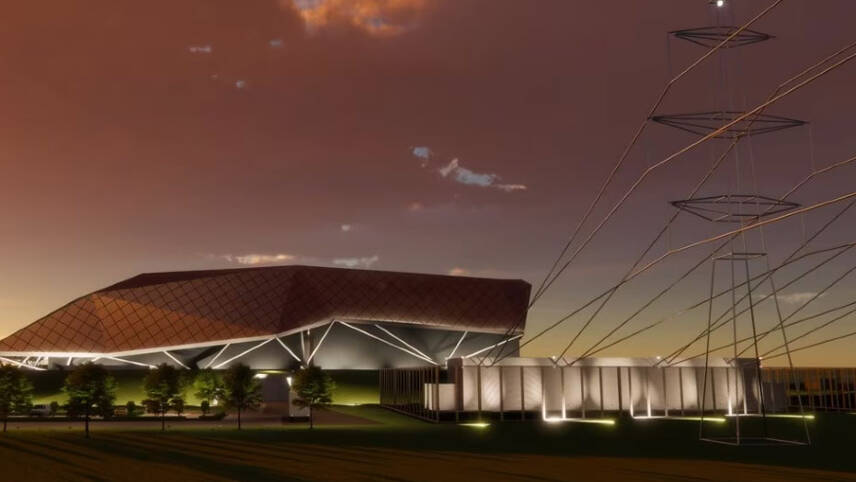Register for free and continue reading
Join our growing army of changemakers and get unlimited access to our premium content

Image: Rolls Royce. Pictured: An artist's impression of an SMR.
Energy Security and Net-Zero Secretary Grant Shapps will today (18 July) deliver a speech outlining details of Great British Nuclear’s (GBN) first funding round, which will be allocated on a competitive basis to companies working on small modular reactors (SMRs).
GBN was confirmed by the Government at the Budget. It is an arms-length body responsible for driving the delivery of new nuclear projects, via engagement and investment across the value chain.
It has been collecting industry information on SMRs and engaging key players in the sector, including Rolls – Royce, since April. It will today open its first round of funding to applications.
Applications for grant funding open today. edie has asked for information on the timeline for grant allocation, plus the total budget available under this funding round.
GBN’s interim chair Simon Bowen said: “We look forward to working with all interested parties – technology vendors, the supply chain, the wider industry and local communities as we move this essential programme forward.”
Separately from GBN, the Government has announced up to £157m of grant funding for the nuclear industry. Up to £77.1m will go to companies accelerating the development of next-gen nuclear businesses in the UK, which would lay he groundwork for SMR development and construction this decade.
A further £58m is open for those developing advanced modular reactors (AMRs) and next-generation fuels. High-temperature AMRs could produce both nuclear and heating for industrial uses. Funding for AMRs is being split between two facilities in Warrington and one in Preston. For fuels, funding is being split between eight projects across the UK.
It bears noting that these announcements were due last week. The Government stated that “unforeseen circumstances” resulted in a minor delay.
Long-term vision
The UK Government envisions 25% of the UK’s electricity mix coming from nuclear by 2050. This target was set in 2022 under the Energy Security Strategy. Achieving this will require the delivery of large projects, one of which should complete this decade, but is unlikely to be met without SMRs.
In a statement, the Government called SMR technology “more agile” and stated that early investment now is key to “spearhead the future of nuclear technologies”.
Last year, nuclear accounted for 15.5% of the UK’s electricity mix and the sector generated around £6bn in economic benefit for the UK.
Shapps said the development of SMRs in the UK “could result in billions of pounds of public and private sector investments” but noted that the sector is still nascent. He has described the forthcoming uptick in investment a “revival” and “renaissance”.
The first approval process for a UK-designed SMR, from Rolls Royce, was kick-started in 2022. Each SMR from the firm would take around £2bn to deliver.
When the Energy Security Strategy was published, the focus on nuclear and offshore wind were welcomed. But the Government faced pressure to go further and faster on energy efficiency, energy storage and onshore renewables. It has since updated the Strategy, including plans to deploy solar more rapidly and setting new energy efficiency targets.
Debates around the Strategy’s inclusions for oil and gas remain live, with little changed here. The renewables industry has been calling for benefits in line with tax deductions currently available for fossil fuel expansion. Green groups have also called on the Conservatives for more concrete information on the timelines for phasing fossil fuels down, per the Paris Agreement.


Nuclear cannot be built on time, and there is no method of safe disposal of high level wastes over geographical time periods. Renewables are the way to go Grant Shapps. The electricity is a lot cheaper.
The historical long build-time for reactors has been largely due the proliferation of reactor types; the “this one has the advantage of…..”. We were, after all, first in the field, remember Calder Hall, and the opening by HM the Queen? I do, in the conference room at AERE Harwell, but then, I’m getting old!
Renewables are inherently variable in output, just like nature, in fact! But its all good energy.
Even standard fuel power stations are not constructed overnight!
With reference to the price of renewables, I believe that this is questionable, especially when wind is very low for long periods, as has happened.